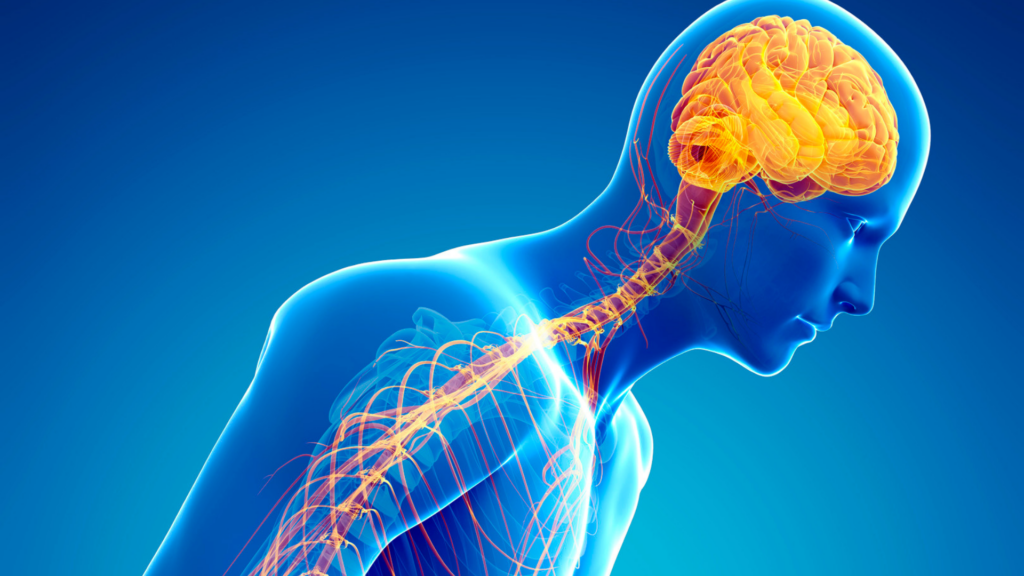|
Getting your Trinity Audio player ready...
|
Imagine waking up one morning to find your body not quite following your commands, your movements slower, and your hands trembling uncontrollably. This is a reality for millions worldwide living with Parkinson’s Disease, a neurodegenerative disorder that stealthily intrudes into lives, altering them forever.
This progressive neurological disorder challenges every facet of daily living through its hallmark symptoms: tremors, stiffness, and slowed movement. Understanding Parkinson’s, from its diagnosis to management, is crucial for those affected and their loved ones. In this blog, we dive into essential aspects of Parkinson’s, referencing leading health resources for a comprehensive overview.
What is Parkinson’s Disease?
According to the Mayo Clinic, Parkinson’s disease is a progressive disorder of the nervous system that affects movement. Symptoms start gradually, sometimes with barely noticeable tremors in just one hand. The disorder also commonly causes stiffness or slowing of movement. As this condition progresses, both motor and non-motor symptoms become more pronounced, significantly impacting the quality of life.
Is Parkinson’s Disease Genetic?
While most cases of Parkinson’s appear to be sporadic, an estimated 10% to 15% of cases have a genetic component, suggests the Parkinson’s Foundation. These findings indicate that genetics can play a role, although having a family member with Parkinson’s Disease does not guarantee an individual will inherit the disease.
How is Parkinson’s Disease Diagnosed: A Careful Process
Diagnosing Parkinson’s Disease involves a thorough evaluation, including a review of symptoms and neurological examinations, as outlined by the MDS Clinical Diagnostic Criteria. There’s no single test for Parkinson’s Disease, making the diagnostic process complex, often involving various assessments to rule out other conditions.
Many practitioners will utilize the DaT Scan or skin punch biopsy as part of the diagnostic evaluation. However, there are limitations to these tests because an abnormal result cannot distinguish Parkinson’s disease from several other neurodegenerative conditions that have similar features.
Parkinson’s and Dementia: Does Parkinson’s Cause Dementia?
The Michael J. Fox Foundation highlights that 40% of those with Parkinson’s disease may eventually develop Parkinson’s Disease Dementia (PDD). Furthermore, while estimates vary, approximately 25 percent of people with Parkinson’s experience mild cognitive impairment (MCI). MCI could stay the same, get better or worsen over time. In some people, MCI gradually progresses to dementia, underscoring the disease’s impact beyond physical symptoms.

Can Parkinson’s Disease Kill You?
Parkinson’s Disease itself is not a direct cause of death, but the complications from the severe symptoms can be life-threatening. The American Parkinson Disease Association discusses how the progression of Parkinson’s Disease can lead to conditions that increase the risk of mortality, emphasizing the importance of comprehensive care and management of symptoms.
Prevention Strategies: How to Prevent Parkinson’s Disease
While there’s currently no known way to prevent Parkinson’s Disease, the Michael J. Fox Foundation for Parkinson’s Research discusses ongoing studies focused on understanding risk factors and potential prevention strategies. Lifestyle changes, such as increased physical activity and a healthy diet, may hold promise for reducing risk or delaying the onset of Parkinson’s Disease.
Additionally, Johns Hopkins University summarizes the impact of lifestyle modifications on Parkinson’s disease, suggesting that adopting these habits to keep you healthy and strong may provide better symptoms control, slow the progression of the condition, keep you healthier longer, help to avoid secondary symptoms of Parkinson’s (like constipation), improve mobility and balance, and enhance overall quality of life.
Stages of Parkinson’s Disease
The progression of Parkinson’s can be categorized into five stages, according to the Parkinson’s Foundation. This classification helps patients, caregivers, and healthcare providers understand the progression and plan for care needs as the disease advances.
What are the 5 stages of Parkinson’s Disease?
Stage One
The journey begins with stage one, where symptoms are mild and largely non-disruptive to daily activities. Symptoms, including tremors, primarily affect one side of the body, with subtle changes in posture, walking, and facial expressions being common.
Stage Two
As Parkinson’s Disease advances to stage two, symptoms such as tremors and rigidity become more pronounced and affect both sides of the body or the midline, including the neck and trunk. Daily tasks become more challenging and time-consuming, though individuals can still live independently.
Stage Three
By stage three, balance issues become prominent, increasing the risk of falls. While motor symptoms worsen, individuals at this stage maintain the capability for independent living, albeit with some restrictions in daily activities.
Stage Four
Stage four marks a significant shift, with symptoms now fully developed and severely limiting. Individuals may still walk and stand unassisted but often require devices like canes or walkers for safety. Assistance with daily living activities becomes necessary, signaling an inability to live alone safely.
Stage Five
The final stage, stage five, is the most advanced and debilitating phase of Parkinson’s Disease. Stiffness and loss of mobility may render individuals unable to stand or walk, necessitating full-time care for all activities, whether they are bedridden or confined to a wheelchair.
Is Parkinson’s Autoimmune?
The current scientific consensus, including studies referenced in the Journal of Parkinson’s Disease, suggests that while inflammation plays a role in Parkinson’s, it is not classified as an autoimmune disease. However, the relationship between the immune system and Parkinson’s Disease is an area of active research, with ongoing studies aimed at understanding these complex interactions.

Looking Ahead: The Parkinson’s Solutions Summit 2.0
In the landscape of Parkinson’s Disease—filled with challenges and uncertainties—knowledge, treatment innovations, and community support shine as beacons of hope. The Parkinson’s Solutions Summit 2.0 represents a unique convergence of these elements. By bringing together leading experts, patients, and caregivers, the summit aims to empower individuals with Parkinson’s Disease to navigate their condition with confidence and support.
Hosted by the esteemed Kenneth Sharlin, MD, and Barbara Pickut, MD, MPH, the summit is not just an event; it’s a lifeline. Scheduled for November 5th – 11th, 2024, it’s an opportunity to connect with a community that understands the journey with Parkinson’s Disease. This online event will cover topics from managing symptoms to innovative treatment options, offering hope and support to people with Parkinson’s Disease and their families.

- Access the Parkinson's Solutions Summit
Learn from top leaders in the field the skills you need today.
In Summary
Parkinson’s Disease challenges individuals and families in profound ways. Yet, with advances in medical science, supportive communities, and events like the Parkinson’s Solutions Summit 2.0, there is hope and help. Understanding the disease, staying informed about the latest research, and connecting with others can transform the Parkinson’s journey into one of resilience and empowerment.
In this era of innovation and support, the path forward for those affected by Parkinson’s Disease is brighter than ever. Together, we can navigate the complexities of Parkinson’s Disease, armed with knowledge, supported by community, and inspired by progress.
References
- Mayo Clinic. (n.d.). Parkinson’s disease. Mayo Foundation for Medical Education and Research. Retrieved from https://www.mayoclinic.org/diseases-conditions/parkinsons-disease/symptoms-causes/syc-20376055
- Parkinson’s Foundation. (n.d.). Genetics and Parkinson’s. Retrieved from https://www.parkinson.org/understanding-parkinsons/causes/genetics
- Parkinson’s Foundation. (n.d.). 5 Stages of Parkinson’s. Retrieved from https://www.parkinson.org/understanding-parkinsons/what-is-parkinsons/stages
- Postuma, R. B., Berg, D., Stern, M., Poewe, W., Olanow, C. W., Oertel, W., …Lang, A. E., Litvan, I., Halliday, G., Goetz, C. G., Gasser, T., Dubois, B., …Chan, P., Bloem, B. R., Adler, C. H., & Deuschl, G. (2015). MDS Clinical Diagnostic Criteria for Parkinson’s Disease. Movement Disorders, 30. https://doi.org/10.1002/mds.26424
- National Institute on Aging. (n.d.). Parkinson’s disease. U.S. Department of Health and Human Services, National Institutes of Health. Retrieved from https://www.nia.nih.gov/health/parkinsons-disease
- Alzheimer’s Association. (n.d.). Parkinson’s disease dementia. Retrieved from https://www.alz.org/media/Documents/alzheimers-dementia-parkinsons-disease-dementia-ts.pdf
- American Parkinson Disease Association. (n.d.). End-Stage Parkinson’s Disease & Risk of Death. Retrieved from https://www.apdaparkinson.org/article/death-parkinsons-disease-3/
- Michael J. Fox Foundation for Parkinson’s Research. (n.d.). PPMI Clinical Study. Retrieved from https://www.michaeljfox.org/ppmi-clinical-study
- Journal of Parkinson’s Disease. (n.d.). Growing Evidence for the Role of the Immune System in Parkinson’s Disease. Retrieved from https://www.journalofparkinsonsdisease.com/growing-evidence-role-immune-system-parkinson%E2%80%99s-disease


Navigating through this insightful blog post, I was struck by the thorough exploration of Parkinson’s Disease, a condition that touches the lives of millions globally. The gradual onset and progression of symptoms such as tremors, stiffness, and slowed movement paint a vivid picture of the challenges faced by those living with this neurodegenerative disorder. The journey from diagnosis to managing daily life with Parkinson’s is complex, deeply affecting not only the individuals diagnosed but also their families and loved ones.
The blog’s discussion on the genetic aspects of Parkinson’s was particularly enlightening, highlighting the blend of sporadic and hereditary factors involved. This nuanced understanding underscores the importance of ongoing research and genetic counseling for families navigating the uncertainties of Parkinson’s.
Diagnosing Parkinson’s, as outlined, involves a meticulous and comprehensive process that resonates with the experiences of many who have gone through numerous assessments to confirm their condition. This reinforces the critical need for patience and perseverance through the diagnostic journey, emphasizing the role of healthcare professionals in providing clarity and support.
The potential development of Parkinson’s Disease Dementia (PDD) as highlighted brings to light the broader impacts of Parkinson’s beyond physical symptoms. It’s a sobering reminder of the importance of holistic care that addresses both the motor and non-motor symptoms of the disease.
Understanding the stages of Parkinson’s, from the initial mild symptoms affecting daily activities to the more advanced stages requiring significant care, is crucial for planning and adapting to the evolving needs of those affected. The detailed breakdown of each stage offered in the post provides a valuable framework for patients, caregivers, and healthcare providers.
The blog post’s emphasis on community support and the upcoming Parkinson’s Solutions Summit 2.0 is a testament to the power of collective knowledge and the strength found in shared experiences. Such platforms are essential for disseminating the latest research, treatment options, and strategies for living well with Parkinson’s.
In conclusion, this blog post serves as a comprehensive guide and a source of hope for those impacted by Parkinson’s Disease. The advancements in medical science, the emphasis on personalized care, and the support of a knowledgeable and compassionate community offer a path forward. In the face of Parkinson’s, armed with understanding and united in purpose, there is light on the horizon.
Thanks for this blog article. It serves as a practical and insightful resource on Parkinson’s Disease, offering a deep dive into how this progressive neurological disorder can affect daily life. By addressing key topics such as recognizing early symptoms, understanding the genetic predispositions, and navigating the diagnosis process, it equips readers with the knowledge to better manage the condition on a day-to-day basis. Moreover, by exploring the connection between Parkinson’s and the potential onset of dementia, the blog underscores the importance of being informed and prepared for how the disease may evolve, making it a valuable tool for patients and caregivers alike in adapting to and planning for the challenges of Parkinson’s.
This blog post brilliantly encapsulates the multifaceted nature of Parkinson’s Disease, shedding light on its progression, symptoms, and impact on individuals and their loved ones. The comprehensive overview provided here, supported by reputable health resources, serves as a valuable resource for anyone seeking a deeper understanding of this challenging condition.
From the gradual onset of symptoms to the classification into different stages, every aspect is meticulously explained, helping readers grasp the complexities of Parkinson’s Disease. The inclusion of information on genetic factors, diagnostic processes, and potential complications like Parkinson’s Disease Dementia adds depth to the discussion, emphasizing the need for comprehensive care and management.
Moreover, the mention of ongoing research and initiatives such as the Parkinson’s Solutions Summit 2.0 underscores the importance of staying informed and connected within the Parkinson’s community. It’s heartening to see a proactive approach toward empowering individuals with Parkinson’s Disease, offering them hope and support through knowledge and community engagement.
In a world where challenges abound, initiatives like these remind us that with knowledge, support, and resilience, individuals affected by Parkinson’s Disease can navigate their journey with strength and determination. This blog serves as a beacon of hope and a testament to the power of education and community in overcoming adversities.